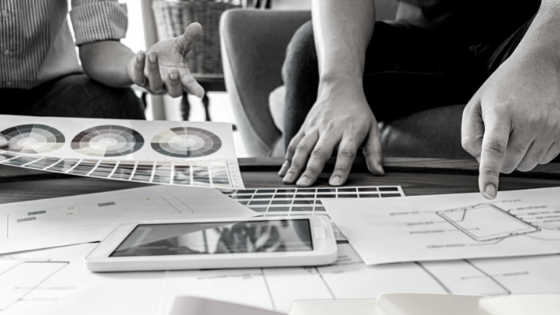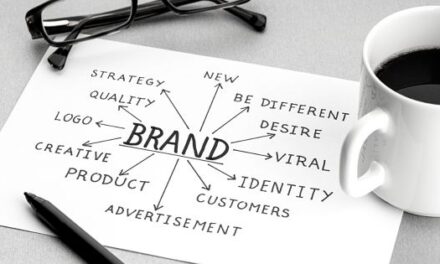Creating a website is easy, right? Just throw a few images on a page, add a bit of text and a big button saying buy my products/services!
Nothing could be further from the truth, but sadly, many website owners believe this is the case and then wonder why the website is not repaying their investment or helping their brand grow. Running a successful website requires many things, and it can be made 100% easier by investing some time into the project’s planning.

Website planning plays a paramount role in laying the foundations for the future success of your website, much in the same way that a house needs to be built on solid foundations. Knowing what you need from your website or what you might need in the future and factoring that into the initial phases can save you both time and money.
Having a clear plan will also help you find a web designer or web developer to work with quicker and know if the project is possible with your budget. This blog post will outline what you need to factor into your planning to get the website that your business needs and deserves.
Your Website’s Objectives
Every aspect of your business needs to serve a purpose, and your website is no different. Your website will often have multiple purposes, such as marketing, eCommerce and a point of information. Given that it has numerous goals and needs to work hard – investment in it from day one is paramount, both time investment and money investment.
Deciding what you want from your website allows the design and development team to know which route to take for you. Things such as the ability to update content yourself or add new products with ease could determine the path taken in terms of custom coding a website or using a CMS system such as WordPress.
A few things you should be considering:
- Do you need any eCommerce features or booking systems?
- Are you focusing on local customers or national?
- Do you want a blog to aid with SEO and content marketing?
- How your branding is going to fit in with the website.
- Do you need to be able to update the site yourself?
Keeping those few things in mind will allow you and your website design team to map out a plan for how the site will be built, how it will function and, more importantly, if it fits your budget and timescales.
Factor in SEO
Even if you do not plan to invest in SEO from the start, it is better to have a website with SEO considered at the build stage. Why? To put it simply, it is easier and quicker to deal with it at the start than it is to unpick the errors and issues down the line when you invest in SEO.
To name but a few of the things to factor in:
- Site structure
- URL structure
- Image formats & sizes
- Meta titles and descriptions
- Header structure
- Sitemaps
Keeping those things in mind will help your site be indexed by search engines and make it easier to climb the rankings, leading to more website traffic.
Plan Your Content
Design can only take your website so far; the rest of it is down to 2 other crucial factors: UX and content. Content incorporates everything from images and videos to words and icons. Planning it and ensuring it fits with the overall goal is critical to reaching your online goals.
Content can help you reach more customers. It can help your brand stand out against your competitors. It can help convert website visitors into new customers, so plan it carefully and invest in it in the early stages of your website build.
Trust Your Website Designer
Honestly, this is a must! Website designers bring more to the table than they are often given credit for, and so many small business websites fail as the owners stand in the way of its progress. This is not to say do not work as a team toward an end goal, as client input is paramount in the design phase.
Your website is for your customers, not you! Your website designer will have a better idea of what works and does not work in the online world. It’s what they do for a living! So trust in their skills and allow them to guide you to what can work and what won’t work and take on board their advice.
Do Not Skimp On The Hosting
When planning your website, you also need to consider ongoing costs, and one such cost is hosting. You have all seen the offers, £1 per month for super-duper fast hosting – let us be honest, adverts like this need to be in the bin! There is no point in investing in a fantastic website if you skimp on the thing that allows it to work at its best. Would you buy an Aston Martin and expect to pedal it like a pushbike along the road? Probably not, so don’t put your website in the same situation!
Factor in the cost of decent website hosting and ongoing expenses such as:
- Domains
- SSL
- Maintenance
- Licences for third party software
- Email hosting costs
Knowing what to expect down the line allows you to plan for it and factor the costs in, meaning crucial decisions can be made early.
Website Planning Summary
There are plenty of companies out there that will tell you that designing a website is easy, cheap, and a whole host of other things, which it may well be for some. You need to ask yourself, “what do I want from my website”. Planning is vital if it is a return on your investment and a tool for your business to grow. If it is just a page with a few words on it that you only have as “its the done thing”, throw a few words and images onto a website builder!
If you are looking for a website that will help your business grow, why not speak to the team here at E2E? We have front end developers, back end developers, SEOs, graphic designers and web designers on our team! Meaning we can handle any project that you are looking to launch! We are experts in small businesses and how they operate and here to take the strain from your shoulders when it comes to getting an online presence that works for you. We are a team of dedicated small business specialists who know precisely what it takes and have the tools, the skills and the passion for helping your business succeed online






















